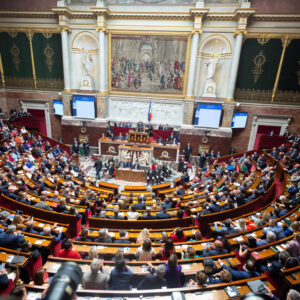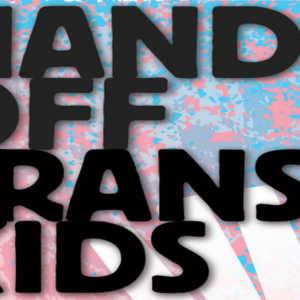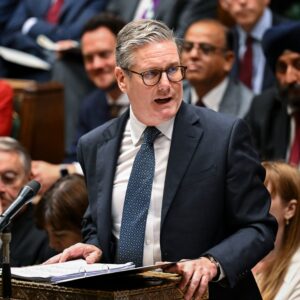Source >> People and Nature blog
The article is based on an on-line talk I gave on 4 July at the Humanitas Unisinos Institute (IHU) of the University of Vale do Rio dos Sinos, Brazil, and I thank my friends there for inviting me. (A video, in Portuguese only, is here.)
Part One. “Energy crisis” and the transition
The combined effect of western sanctions, Russian “self sanctions” and market volatility last year produced a sharp spike in gas prices and an increase in oil prices. There were fears that the shortage of gas supplies to Europe would result in some rationing in the winter, but these were not realised. The same problems could be replicated this coming winter.
For the longer term, the western powers stated their determination to reduce their dependence on Russian oil and gas supplies. Most, but not all, of the large western oil companies said that they would sell or close down their oil producing operations in Russia.
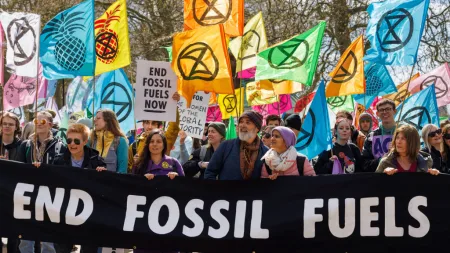
Politicians and company executives presented this to the public as an “energy crisis”. And although the disruption to oil and gas markets is real enough, this “crisis” is also in some respects a mirage that serves corporate power. We need to question this way of looking at things, for at least these four reasons.
First. The most serious effects of the war were not only about energy, but – apart from the horrendous destruction in Ukraine itself – (a) the human cost to millions of people who have fled Ukraine as refugees, and (b) the impact on food markets in north Africa especially, due to the constraints on Russian and Ukrainian exports of agricultural products.
Second. The increase in retail prices of gas and electricity for households, especially in Europe, resulted from decisions by large energy corporations, working in liberalised markets, and from decisions of governments who regulate those markets. The war’s influence was only indirect. Some governments decided to protect households from these impacts, and all governments could have done so.
Third. Energy corporations profited from these events, to the tune of hundreds of billions of dollars. The five largest western oil companies alone made $134 billion in profit in 2022. But there is much more: a recent survey of the oil exporting Gulf states estimated that their current-account surpluses for 2022 were in aggregate more than $600 billion; these governments are literally wondering what to do with all the money.
Fourth, and most relevant to the climate crisis, all the claims about the “energy crisis” assume that there is a fixed level of demand for electricity and fuels, and that this must be met at all costs. This is perhaps the most dangerous deception of all.
Take the most acute shortage caused as a result of the war, of gas for Europe. Research institutes in Germany last year produced detailed reports, showing how investment in insulation of buildings and heat pumps (to reduce the amount of gas used for heating), investment in renewable electricity, and changes to gas-intensive industrial processes, could slash gas demand.
Within two or three years, they argued, savings could be made equal to the volume of Russian gas imported by Germany. This was a great opportunity to introduce radical policies to move away from fossil fuel dependence – policies that are anyway many years overdue, because of the need to avert dangerous climate change.
The western powers, far from embracing this opportunity, on the contrary chose to redouble their commitment to fossil fuels, and to invest in new oil and gas supplies from non-Russian sources.
So in the year up to October 2022, companies in Europe commissioned enough new terminals and equipment to import enough liquefied natural gas to more than replace all imports of Russian gas.
The US, which exports liquefied natural gas, approved enough port facilities to double its export capacity.
Governments also cynically used the so-called “energy crisis” to approve big investments in new oil fields, such as the Willow field in Alaska (USA) and the Rosebank field in the North Sea (UK).
Oil fields take years to develop, and so these fields will not be able to produce oil for five, or more likely 10, years at the earliest. They will therefore make no impact at all on any shortages caused by the war.
They will, however, add to the problem of global warming, at a time when the International Energy Agency, the United Nations and climate scientists are warning that no new oil fields should be commissioned.
These decisions tell us about the real intentions of governments who claim to be dealing with the climate crisis. They intend to keep burning fossil fuels long after the point where it should stop, if dangerous global heating is to be avoided. This is a frightening prospect, and we need to find ways to resist it.
In my view, we can better understand these governments’ collective criminality, by considering the relationship between the causes of the climate emergency and the causes of war, which I cover in Part 2 of the article below.
In the 1990s and 2000s, the overriding drive of capitalism to expand at all costs shaped the way that the western powers embraced Putin and his team as keepers of order who could oversee the integration of Russia with global markets; restraining that team’s imperialist nationalism was the last thing on their minds.
It is this same drive that has led them to fail, catastrophically, to find any strategy that could implement the reduction in fossil fuel use the need for which was recognised in the Rio treaty of 1992.
□
Ways that society can push forward the transition away from fossil fuels
The process of the international climate talks has not only failed to slow down the relentless increase in fossil fuel consumption and the emission of greenhouse gases.
It has also been used as an ideological tool: to produce a discourse, to convince society that the world’s states are taking care of the problem.
In the last few years, the dangers of global heating have become more evident to millions of people, because of alarming changes in the weather. And many hundreds of thousands, perhaps millions, of very young people have expressed their deeply-held concerns about climate change in school strikes and other actions.
All this has put a strain on the discourse. The distance between words and action is just too great.
And so on one hand we see the talks being taken over still more openly by the oil companies, with the president of this year’s talks in the United Arab Emirates, Sultan al-Jaber (head of the UAE state-owned oil company), resisting any discussion about reducing fossil fuel burning, and talking instead about carbon capture technologies that can not solve the problem.
On the other hand we see more and more vocal attacks on oil companies by some senior figures associated with the process – because despite being politicians, they are also human beings, and know that a fraud is being perpetrated.
So Antonio Guterres, the UN secretary general, attacked al-Jaber’s proposal as a means for the oil industry to become “more efficient planet wreckers”.
I give this example not because I think Guterres can show us the way forward, but because I think the discourse around the international talks is breaking down. It is failing to achieve its ideological purpose.
In my view, the talks process and the governments who participate in it are the problem, not the solution. The solution needs to be found by society, in opposition to these governments.
That is a very general statement and no one action or one policy is going to work. This problem has been with us for many years and will be with us for many years to come.
The most hopeful sign is that there is potential to form a wide coalition, embracing the young people I have mentioned, the labour movement, wide swathes of civil society, and the climate scientists, many of whom have spent sleepless nights for years worrying about climate change, but up to now felt isolated, because their appeals to politicians were ignored.
I would say that such a coalition could base itself on some key principles, and I suggest seven such principles:
1. Demand that governments adopt carbon budgets, not “net zero” targets.
“Net zero” is a perfectly valid scientific concept (the idea that we need to reach a state in which the volume of greenhouse gases pumped into the atmosphere, minus the volume taken out for example by forests, is zero).
But it has been misused by oil companies and their friends, who have put political pressure on scientists to include completely unrealistic projections of artificial removal of greenhouse gases in their scenarios.
This is, essentially, what the tension between Guterres and al-Jaber is about.
Carbon budgets avoid these problems, by stating the amount of emissions to which any country’s economy should be limited, in order to ensure that dangerous climate change is avoided – and assuming zero artificial greenhouse gas removal.
2. These carbon budgets must be worked out on principles of equity between the global south and the global north.
The rich countries, who are historically responsible for the vast bulk of greenhouse gas emissions, must not only make the biggest, fastest cuts in fossil fuel use, but also make provision for its impacts that are already being felt in the global south, so-called “loss and damage”.
3. Society must stop, by any means necessary, new oil and gas projects, and new fossil-fuel-intensive infrastructure such as roads and airports.
4. The basis of future energy provision must be electricity produced from renewable sources. We should work towards this energy being provided as a right, as a service – not as a commodity – by publicly-owned entities.
While big solar and wind farms will surely be part of the future system, decentralised sources controlled directly by communities and municipalities should be used to the extent that is technologically possible.
5. We must systematically challenge big corporations’ claims that technical fixes – the large-scale production of hydrogen, or the replacement of petrol cars by electric cars, for example – are the main means to solve the climate crisis.
6. “Green growth” is a fiction, and the idea that “green growth” creates jobs that are the best working people can hope for, is a fiction. Against this we need economic policies that underpin the transition, both away from fossil fuels and towards creative, meaningful work.
7. Policies must be prioritised that reduce the throughput of fossil fuels, while improving the services that they provide.
The insulation of homes to reduce or avoid the need for artificial heating, combined with electric heat pumps, is an example. Another is the development of urban transport systems that supercede, with public transport and changes in urban design, the use of private cars in cities.
Of course many, many people and organisations are fighting hard around all these issues. My point is about how they can be brought together in a movement strong enough to confront governments.
Finally: I do not know how these ends can be achieved. But I can make some general points about this.
First, it is important not to pretend that it will all be OK in the end, and to promote false optimism. Millions of people have had their lives ruined by climate-related weather events already, and millions more will suffer, whatever happens. At the same time, we should not lose hope. The process of transition away from fossil fuels needs to happen in a very short time scale in historical terms – two or three decades – but it can be done.
Second, civil disobedience will play an increasing part in this movement. We are seeing this in the UK and Europe, and we are also seeing increasingly authoritarian policing of such protests. This conflict will intensify.
Third, we must focus on the many ways in which policies can simultaneously move away from fossil fuels, and also change the way we live for the better.
Tackling climate change and living better lives are not contradictory: they are the same. If we do not put this at the centre of actions we take, we will never mobilise society as a whole around this issue.
□
Part Two: how the roots of war and of climate crisis are tangled up together
Russia’s war on Ukraine is a one-sided war of aggression, waged overwhelmingly on Ukrainian territory, aimed at the Ukrainian population as much as against the Ukrainian army and state. Russia’s war aim is to subjugate Ukraine, which was for centuries Russia’s largest colony.
My own attitude to the war is based on the principle that victims of imperialist attack have the right to resist it. I hope that by contributing to funds raised by Ukrainian friends for equipment for soldiers, or to legal teams who defend Russians arrested for anti-war actions, I am being consistent with the support I tried to give to Vietnamese resistance to US aggression in the 1970s or to Palestinian resistance to Israeli apartheid. Politically, I see Ukraine in the same light.
The obvious difference is that while Vietnamese and Palestinian people faced the world’s most powerful imperialist nation, and/or its client states, Ukrainians are being terrorised by an imperialist power in decline, one that in its relationship with global capital is economically subordinate.
One of the Kremlin’s justifications of its war is that it fears the growth of the NATO military alliance. While this obviously fails as a political excuse for murdering and torturing Ukrainian civilians, in my view it also fails as an explanation of Russia’s relationship with the western powers.
To understand this relationship, an obvious place to start is with the break-up of the Soviet Union 32 years ago, after which Ukraine and other former Soviet republics became fully independent from Russia for the first time.
Russia, Ukraine and other former Soviet states were rapidly integrated in to world markets and in the early 1990s experienced the worst peace-time slump anywhere, ever. Russia was then, as now, one of the world’s leading exporters of oil, gas and metals. Western capital in the main sought not to take ownership of these assets, but to turn Russia into a supplier of raw materials to world markets.
During the 1990s the western powers had feared that the Russian state might collapse. When Vladimir Putin succeeded Boris Yeltsin as president in 2000, those powers welcomed him as someone who could make the state function effectively again.
Putin’s first act was to crush the separatist forces in the southern republic of Chechnya. They had defeated the Russian army in 1996 and achieved a measure of autonomy. Putin ordered that army to attack Chechnya, using scorched earth tactics against the civilian population, that are now used in Ukraine.
The western powers fully supported this action, as part of the so-called “war on terror” that they were themselves waging in Afghanistan and Iraq.
Putin next turned on the so-called “oligarchs”, the politically-powerful businessmen who had taken control of oil, gas and metals companies. He made them pay some taxes, and warned them to stay out of politics.
Some assets, most notably those that made up the oil company, Rosneft, were taken back into state ownership, and control of them handed to Putin’s former colleagues from the security services.
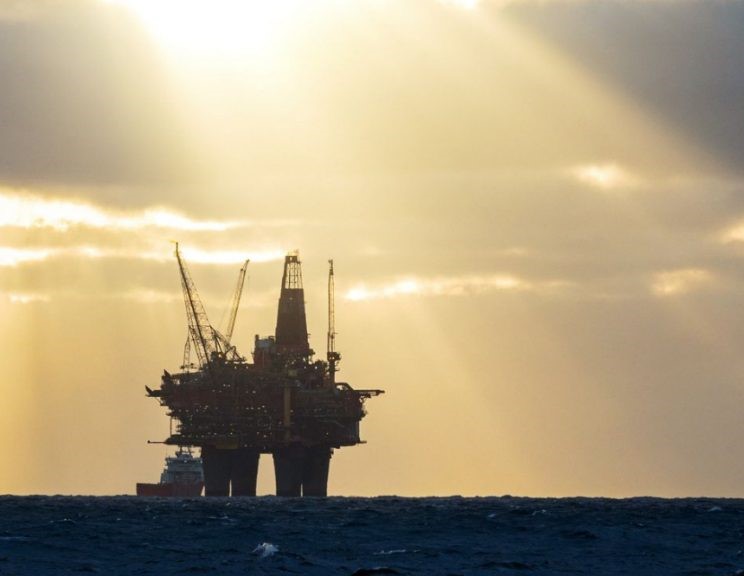
During Putin’s first two terms in office, from 2000 to 2008, oil prices were rising constantly and the Russian economy boomed. The fall in people’s living standards in the 1990s was reversed.
Russian capital flourished, not because it developed industrial or technological capacities, but thanks to the huge windfall it received from exports of oil, gas and metals. The revenues from these exports were largely re-exported; the big problems that worried Russian economists were “capital flight” and the so-called “resource curse”.
Politically, the western powers saw Putin as a gendarme, to protect capital’s interests in the former Soviet space. Russia was welcomed in to the so-called “G7 plus one” of the world’s strongest capitalist powers.
It was at this time that NATO expanded in to eastern Europe: seven eastern European countries were admitted in 2004. There were even discussions at that time about Russia joining NATO, although these came to nothing.
Nevertheless, the western powers were happy for Putin to wield power in the former Soviet space as he saw fit. For example they turned a blind eye to his invasion of Georgia in 2008.
The world financial and economic crisis of 2008-09 was an important turning point. Russian capital was shaken. Living standards across the former Soviet space stagnated and started to fall again. There were big protest movements in Russia in 2011-12, which Putin’s regime struggled to control.
This instability culminated in the so-called Maidan uprising in Ukraine in 2013-14, the overthrow of president Yanukovich, the appearance of separatist forces in eastern Ukraine, Russia’s military intervention in support of them, and Russia’s annexation of Crimea.
At this point, the western powers did intervene, to discipline their gendarme. Sanctions were imposed on Russia – but they were limited.
These measures did not dissuade Russia from intervening in Syria in 2015-16, to support the Assad regime’s war on its own population. Events there showed that, while the western powers pretended there were no “spheres of influence” for competing imperial armies, these existed in reality.
Only in February 2022, as a result of Russia’s full scale invasion of Ukraine, did the western powers abandon their policy of limited cooperation with the Russian government.
Now I will explain why I see these dynamics, which led us to the war in Ukraine, as related to the dynamics that have taken us into the climate crisis.
The international treaty on climate change was signed in Rio in 1992. Before that, in the 1980s, climate scientists had reached a consensus about the dangers of the greenhouse effect, and the fact that human economic activities, principally the burning of fossil fuels, were the main cause. 1992 marked the point at which the evidence was so strong that it was accepted by all the world’s governments.
The treaty provided for action to be taken to prevent dangerous global warming, but none was taken. The US and other powers resisted the principle that nations should adopt binding targets to reduce their emissions.
The myth was invented, that market mechanisms could be used to make the necessary changes, although the only such mechanism that might have had some effect, a global carbon tax, was rejected. This myth was the basis for the Kyoto protocol of 1997, which provided for so-called emissions trading.
The result was that greenhouse gas emissions from fossil fuel combustion have risen every single year since 1992, except for brief pauses in 2009 due to the economic crisis and 2020 due to the Covid pandemic.
The volume of greenhouse gases that goes into the atmosphere each year is now more than 60% higher than it was in 1992.
This is a disastrous failure by the world’s strongest governments, for which society as a whole will pay a terrible price. Perhaps it can be compared to the failure of the European powers to prevent the first world war in 1914.
We can look back to the 1990s, and the early 2000s, and see the political context for this failure. The Soviet Union had collapsed, reinforcing capital’s illusions about its own power.
Globalisation was turbo-charged by electronic technology and the expansion of offshore financial zones. Neoliberalism was in its heyday, waging war on regulation and on Keynesian direction of economic policy.
In this world, climate policy had to be subverted by climate science denial. And Russia mattered mainly as a source of oil, gas and coal, which by 2008 it was pouring on to world markets in record quantities.
Putin was seen as a guarantor of those flows. The political tension with him was seen by the western powers as a price worth paying. This calculation only changed in February 2022.
The underlying driving force of these processes was the capital accumulation and the need for constant economic expansion that characterises capitalism at this stage of its development.
□
The crisis of the Russian petrostate
If we accept that the Russian state under Putin is a creature of capital, a gendarme that has swerved out of control, then we can better understand its actions. I will make two brief points about this.
First, a central function of the Russian state, like all states, is social control. If we think about how the world looked, from the Kremlin, in the years leading up to the invasion of Ukraine, such control was desperately needed.
On top of the Maidan uprising of 2014 in Ukraine, there was in 2020 a huge national revolt against the fixing of elections in Belarus, in 2020 and 2021 an upsurge of protest in Russia itself, and in January 2022 labour disputes and street disturbances that shook the government of Kazakhstan.
It seems that Putin’s decision to invade Ukraine was triggered by his failure to push president Zelensky back on issues of Ukrainian sovereignty. But these social movements were also of great concern to him, and are part of the background to his decision to invade.
The second point is that in times of crisis, states are driven along the road of authoritarianism, the promotion of nationalist, xenophobic, near-fascist and fascist ideologies, and imperialist militarism. These are political and ideological tools of social control; they are used to mobilise sections of the population behind the regime, or at least to secure the acquiescence of the population.
Under Putin, these tools have been used increasingly. And as imperialist militarism has moved to the centre of statecraft, we have seen the use of quasi-state military formations. The Wagner group is the largest but by no means the only one. This has culminated in the armed rebellion last month and deepened the regime’s instability.
The use of these ideological tools cuts across the state’s functions of economic management. Over the last decade, Putin’s government has time and again sacrificed efficient management of the capitalist economy for the sake of this politics and ideology.
The oil industry, the largest source of export revenues, has by and large not been affected by this. But the gas industry has been. It was for decades a key part of the trading relationship between the Soviet Union, and then Russia, with Germany and other European countries. Now that relationship is broken.
From the 1990s to 2021 there were constant conflicts about gas between Russia and Ukraine, over the terms under which Ukraine would buy gas, and transport it to Europe. These started as mainly commercial disputes, but became increasingly political.
The end result was that in 2016 Ukraine stopped direct purchases of Russian gas, and the Russian gas industry lost its second biggest export market after Germany. Meanwhile Russia’s gas sales to Europe continued, despite the sanctions imposed after the annexation of Crimea.
In 2022, in response to the all-out invasion of Ukraine, Germany and other European countries did not impose sanctions on Russian gas, but said they would move away from buying it over a period of years.
The Russian government decided, perhaps in the hope of causing divisions among European states, that it would itself cut off most gas deliveries to Europe. Gazprom, the large state-controlled gas producer, halted deliveries that it was committed to under long-term contracts.
In a few weeks, relationships between Gazprom and the big European energy companies, built up over decades, were destroyed.
In June last year, Gazprom reduced flows through the Nord Stream pipeline to zero. So when it was blown up in September by persons unknown, it had had no gas going through it for three months.
This “self sanctioning” of gas exports is the latest, and most significant, manifestation of the Russian government’s tendency to undermine Russian capital’s commercial intersts for the sake of its ideologised nationalist and military goals.
□
The western powers’ efforts to control, but not destroy, that state
While Russia’s “self sanctioning” of gas has quite effectively destroyed an export business that took so long to build up, the western powers’ sanctions on Russian oil exports have been largely ineffective.
The price cap of $60/barrel, set in December last year, has resulted in Russian oil exports being rerouted to India and other Asian countries. Trading companies have devised new schemes to rebrand and re-sell Russian oil. Because the price of oil was so high last year, revenues to the Russian budget were also unusually high.
It is important to underline that the ineffectiveness of the sanctions is partly the result of deliberate policy decisions.
When the tighter sanctions were being prepared, some European governments suggested sanctioning European-based shipping and insurance services, on which Russian oil exporters rely heavily and which can not easily be substituted. The US government intervened to stop such measures, because it was worried that they would push global oil prices to a level that would endanger post-pandemic economic recovery.
Other sanctions, such as those on the export of various technologies to Russia, have been more effective, but have little immediate impact on cash flows.
The sanctions imposed on financial flows have also been patchy. It is now in practice almost impossible for Russian banks to access funds from international markets. But many of the mechanisms for storing, and hiding, the Russian bourgeoisie’s wealth, are still operating. Russian anti-corruption organisations are still churning out reports, month after month, about war criminals whose assets, and family members, are untouched by sanctions.
In my view, the conclusion is that sanctions are designed not to bankrupt the Russian government, and not to stop it from exporting oil, but to limit its room for manoeuvre and discipline it. 12 July 2023.
□ The talk on which this article is based, in Portuguese only, is on Youtube here
Art (47) Book Review (102) Books (106) Capitalism (64) China (74) Climate Emergency (97) Conservative Government (90) Conservative Party (45) COVID-19 (43) Economics (36) EcoSocialism (48) Elections (75) Europe (44) Fascism (52) Film (47) Film Review (60) France (66) Gaza (52) Imperialism (95) Israel (103) Italy (42) Keir Starmer (49) Labour Party (108) Long Read (38) Marxism (45) Palestine (133) pandemic (78) Protest (137) Russia (322) Solidarity (123) Statement (44) Trade Unionism (132) Ukraine (324) United States of America (121) War (349)
The Anti*Capitalist Resistance Editorial Board may not always agree with all of the content we repost but feel it is important to give left voices a platform and develop a space for comradely debate and disagreement.
Latest Articles
- The (undemocratic) Democratic Party machine lurches toward the electionSharon Smith, writing for International Socialism, explores the control wielded by the Democratic Party establishment over the nomination process in her article, “The (undemocratic) Democratic Party machine lurches toward the election.
- France after the elections: How should the radical left act?In the wake of the National Assembly’s dissolution and new parliamentary configuration, La France Insoumise (LFI) should adopt a clear stance of radical opposition, emphasizing its commitment to anticapitalist principles and democratic reforms while avoiding any compromise with the existing government unless it secures absolute majority support from the populace, argues Gilbert Achcar.
- Why Socialists Oppose the Two‑Child Welfare CapIn this article, Simon Hannah explores why socialists vehemently oppose the government’s two-child welfare cap, arguing that it stems from austerity measures and reactionary views on the poor.
- Hands off Trans KidsA pamphlet from Anti*Capitalist Resistance.
- Two Child Benefit RevoltDave Kellaway responds to the revolt by Labour MPs and others to the Labour government keeping the Tories’ hated two child benefit cap.



